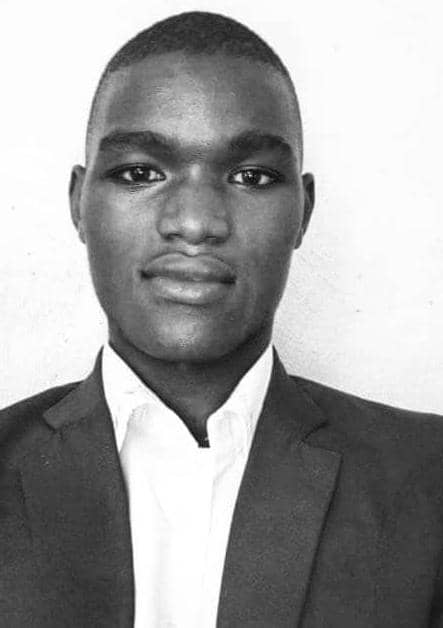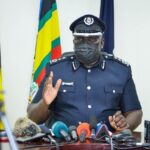By Byamukama Richard
Kampala: With Russia’s entanglements and engagements in the war with the Ukraine and most probably or sooner, NATO and it allies, coupled with the global economic sanctions that could deeply hit the economy of the former Soviet power and it’s overseas projects being frozen, there’s a deep worry on the process of peace formation and stability maintenance on the African continent.
Secondly, as a student of the global intelligence and spying policy, there’s is much anticipation of covert and clandestine operations of which some maybe more lethal in a bid to avert and counteract the growing Russian love for Africa.
This could see the termination of various regimes in African states which probably have been enjoying Russia’s military support. This could evolve a series of military coups and counter coups, social unrests and demonstrations as Edward Snowden a former CIA director narrates of the raise of global survivance and secret policies in his book titled “The Permanent Record”.
The geo political shifts after the Cold War saw two additional, related changes. One is the increasing presence of China and Russia on the continent.
In Africa and elsewhere, China’s foreign relations philosophy is non interference in the domestic affairs of states. In practice, while China has provided support to non democratic states in exchange for access to resources, China has not, as far as current evidence suggests, favoured funding insurgencies.
On the other hand, Russia’s geopolitical ambitions in Africa have also been on a steep formation. The former Soviet power has been rebuilding ties with Africa more quietly, strengthening economic and military cooperation. For the most part, Moscow has been able to fly under the radar for the past two decades, quietly cutting nuclear power and arms exporting deals.
Russia is currently the biggest exporter of weapons to the African continent. According to the Stockholm International Peace Research Institute’s (SIPRI) annual 2020 report, Africa accounted for 18% of all Russian arms exports between 2016 and 2020.
Russian flags waved in Burkina Faso’s capital following January’s military coup in the West African nation. A statue unveiled in the Central African Republic last fall shows local soldiers, backed by Russian fighters, protecting civilians. In Mali, the leaders of a 2020 military coup brought in Russian military trainers believed to be the Wagner.
The spread of militant Islamist extremism and other violence in Africa created more openings for Russian military involvement.
For instance, five nations in the Sahel region which include Burkina Faso, Chad, Mali, Mauritania and Niger solicited Moscow’s military support in 2018. Russian fighters also have been engaged in Mozambique and Angola. By then it made a name for itself as an ally of multiple nations as they battled against relentless insurgencies.
But now, there’s a deep worry about the capabilities of the African military might to overcome insurgents without out direct assistance or intervention of the East and West. The military technologies and financial capabilities.
Africa is prone to conditions that act to favour instabilities for example the current poor economic performance of most African countries characterised by the high inflation rates, skyrocketing oil prices, corruption, unemployment and poverty that are all a threat to “Human Security” context. These situations create conditions of “Mass Emotionalisation” that creates a cause worth dieing for on a battle front.
These results into elements of civil protests and demonstrations, military coups and counter coups, terrorism in a bid for resource control and capture.
African democracies are so prone to Electoral Violence. During the 1970s and 1980s, electoral violence was rare to non existent because one party regimes were dominant (though in the 1960s after independence some elections triggered violence). Yet the reintroduction of multi party contests in the 1990s saw an increase of such violence. Many Africanists know electoral contests can be violent, given recent high profile examples in Zimbabwe, Kenya, and Cote d’Ivoire.
In Cote d’Ivoire, the insurgency that began in 2002 and continued in 2010 was directly related to manipulations of the electoral playing field. When a segment of the population was categorically excluded from electoral contests in the early 2000s and when the incumbent Bagbo sought to cancel results in 2010.
Civil wars are and have been the dominant form of warfare in Africa, they have been more brutal in terms of violence against civilians, in terms of the presence of nonprofessional combatant forces, and in terms of the non-ideological goals of combatants in wars with the examples cited today in Tigray a province in Ethiopia, South Sudan, Nigeria.
In my conclusion, I call upon African regional mechanisms to keep alert and call for stronger actions against any forms of violence on the continent. The African Union and regional organizations like IGAD, East African Community, ECOWAS, SADAC should take a greater interest in the prevention of any forms of unerest, insurgency and armed conflict. In addition, African luminaries should serve as ambassadors of peace. In Kenya’s 2007 to 2008 crisis for example, Kofi Annan and Mzee Yoweri Museveni the Ugandan President were key players in Raila Odinga and Kibaki peace formation process.
Byamukama Richard Bard, is a lawyer and also a Student of Security and Strategic Studies trained from Kabalye National Police Training school, National Leadership Institute. He also went to the Uganda National Institute of Security and Strategic Studies.
You can reach him on
byamukamarichardbard@gmail.com
![]()




























